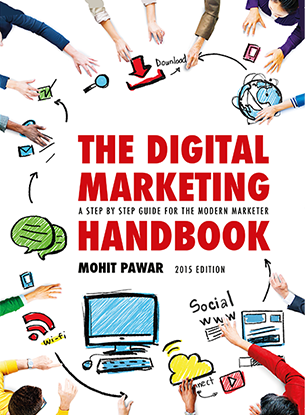 “Entrepreneurship is a cult of bravehearts.” — Mohit Pawar
“Entrepreneurship is a cult of bravehearts.” — Mohit Pawar
Anybody who has jumped on the entrepreneurial bandwagon ever will be able to tell that it not easy. It may be fun but not easy. Those on the lookout for easy are not in for a total disappointment as technology has made it easier to start an enterprise as compared to earlier times. Let us explore how.
Money not a challenge anymore: Earlier money (or lack of it) used to be a major deterrent for wannabe entrepreneurs – at least in their minds. Now it is easy and cheap to research online, bounce your ideas off people, and get feedback.
Getting inspiration and ideas is also free. Think about it. You are reading this information without paying anything. Of course you are giving your attention — that is an investment; but nothing in monetary terms. A hacker can create a live prototype by only investing his time. If the entrepreneur lacks any skills same can be outsourced.
Social proof makes it easy. Thanks to internet the news travels faster. Any significant success of an enterprise becomes global news now. Because of this phenomenon people read and get inspired to do their own thing. With social proof comes self-belief and action. Persistent action in right direction results in success. That is why in future we will see more entrepreneurial success stories — setting a chain reaction.
Geography becomes less significant. There is proof now that it is possible to create a large scale innovation sitting anywhere in the world. In 21st century – anybody irrespective of their cast, creed or color can think and create an enterprise based on an interesting idea.
There is some consideration for economic background because connectivity is yet to reach a part of the world. With projects like One Laptop per child — the message will reach them ultimately. There is also benefit of eco-systems where entrepreneurship thrives for myriad reasons. But if you wish you can start anywhere. You need not be at a specific place to do something.
Thanks to technology there are successful start-ups emerging in various parts of the world — Zoho and SlideShare from India (both are serving global markets); Baidu in China. If there is one Facebook then there is CyWorld in Korea and Wretch in Taiwan.
Being young helps. Before internet era investors looked for age and experience to invest in companies. Major stories of success like that of Marc Zuckerberg of Facebook changed that. Investors now are more willing to invest in young entrepreneurs. Young founders are a norm these days.
Being young is an advantage because investors believe that young people understand technology better. They also are more focused as there is less peer pressure and things to mange like family and related expenses.
Easy to collaborate: With web based apps and services marketplace — you can work with teams spread across the world. It was earlier unthinkable for a start-up.
Opportunity to scale fast: It took Walmart more than 30 years to expand overseas. Facebook took less than 3 years. Talk about scale – as of July 2010 facebook has more than 500-million users. It is easy to predict that some – application, network, or medium – will make this feat look small, sooner than later.
More investment flowing around: Entrepreneurs who have explore the market post bubble and in recent times and have tasted some success are now returning as investors. They need not be convinced about the potential of the bigger story.
Think about people like Marc Andreessen of Netscape, Caterina Fake of Flickr and more recently Hunch and many more like them. There are angels, super-angels and ideas like Ycombinator.
If you have the right message the world is ready to listen to you. With so many things going one should just do it. Who knows there is next Mark Zuckerberg in you?
Are you going to give it a try?


